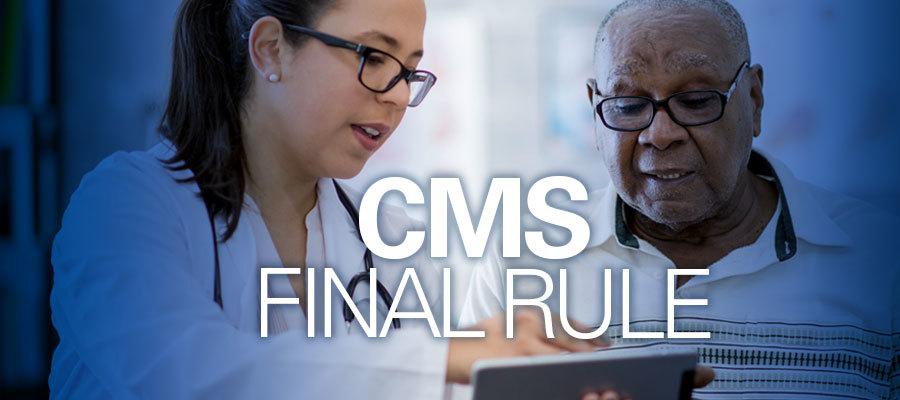In OPPS/ASC final rule, CMS fully phases in site-neutral clinic visit cuts and maintains 340B drug cuts

The Centers for Medicare & Medicaid Services late today issued a final rule that increases Medicare hospital outpatient prospective payment system rates by a net 2.6% in calendar year 2020 compared to 2019. In addition, the rule finishes phasing in use of the site-neutral rate (40% of the OPPS rate) for clinic visits provided in grandfathered off-campus departments for CY 2020. It also continues cuts to drugs purchased under the 340B drug savings program. CMS states it will issue a separate final rule regarding the requirement that hospitals disclose payer-specific negotiated rates, which was initially proposed as part of the OPPS rule.
In today’s final rule, CMS acknowledges that the district court vacated its site-neutral clinic visit cut for CY 2019 and notes that it is “working to ensure affected CY 2019 claims for clinic visits are paid consistent with the court’s order” but is still considering “whether to appeal from the final judgment.”
“The final rule’s continued payment cuts for hospital outpatient clinic visits not only threatens access to care, especially in rural and other vulnerable communities, but it goes against clear congressional intent to protect the majority of clinic services,” AHA Executive Vice President Tom Nickels said. “There are many real and crucial differences between hospital outpatient departments and the patient populations they serve and other sites of care. Now that a federal court has sided with the AHA and found that these cuts exceed the Administration’s authority, CMS should abandon further illegal cuts. Instead, as we urged in a letter to the Department of Justice yesterday, CMS should promptly repay the affected hospitals the full OPPS rate to support the work they do for the patients they serve. And CMS should pay the full OPPS rate for all clinic visit claims going forward.”
CMS also continues its current policy of cutting the payment rate for certain drugs purchased under the 340B program to average sales price minus 22.5%. The AHA, along with other hospital associations and member hospitals, successfully challenged the previous cuts to the 340B program in court. Nickels stated that the “perpetuation of cuts in payments for 340B drugs also defies the judgement of the courts, further straining hospitals serving their communities. After previous cuts to the 340B program were ruled illegal and overturned in court because they exceeded the Administration’s authority, continuation of that policy is wholly unwarranted. CMS should instead offer a plan to swiftly restore in full the funds to those 340B hospitals affected by the illegal cuts so they can continue to care for their patients and communities. This could be done in a non-budget neutral manner, so it does not unfairly penalize other hospitals.” While the agency did not put forward a possible remedy, CMS did state that it will continue efforts to pursue future policy changes related to Medicare Part B drugs acquired through the 340B program through a new data collection effort as well as use the data collected to develop a remedy if required by the courts.
In addition, CMS finalized a policy to change the minimum required level of supervision from direct supervision to general supervision for all hospital outpatient therapeutic services provided by hospitals and critical access hospitals. The AHA has long advocated for such a change, which would reduce burden on rural hospitals.
CMS also finalized changes to the area wage index. Among other policies, the rule will increase the wage index for hospitals with a wage index value below the 25th percentile. It also will decrease the wage index for hospitals with values above the 75th percentile to make this policy budget neutral.
Further, CMS will implement, starting July 1, 2020, a prior authorization process for five categories of hospital outpatient department services: blepharoplasty, botulinum toxin injections, panniculectomy, rhinoplasty and vein ablation.
Finally, the agency removes total hip arthroplasty, six spinal procedure codes and five anesthesia codes from the inpatient-only list, making these services eligible to be paid by Medicare in both the hospital inpatient and outpatient settings. In a related policy, CMS establishes a two-year exemption from certain medical review activities relating to patient status for procedures removed from the inpatient-only list beginning in CY 2020 and subsequent years.
The final rule takes effect Jan. 1.

